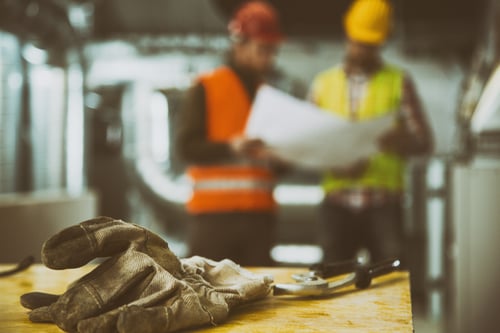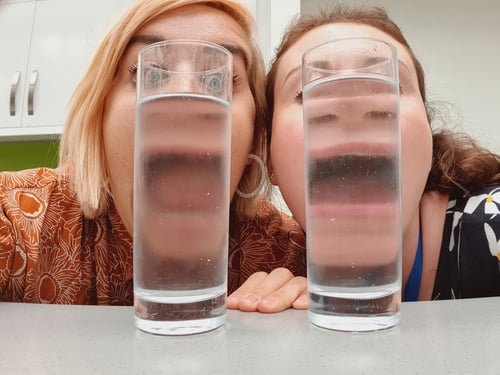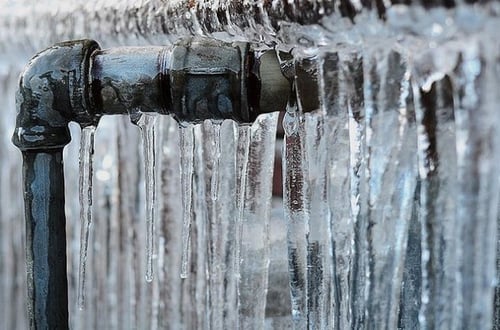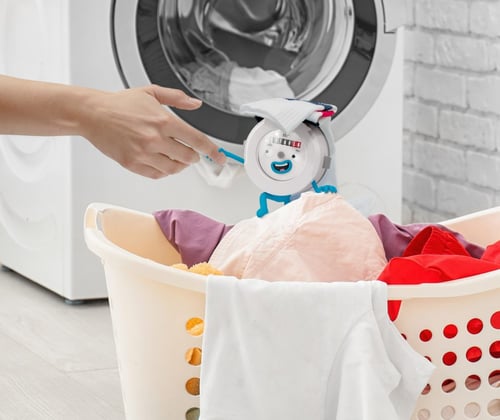.png)
If you live in our water region, chances are you’ve seen (or maybe even met) Peter the Meter. He’s our friendly Chief Metering Officer and is here to help us spread the message that water meters are good news. They’re good news for our planet and for many of us, our pockets too.
We’ve heard all sorts over the years, from water meters always costing more to tales of people’s neighbours (never themselves) with bills in excess of £1000 a year since switching through to the microwaves they emit scrambling our brains and our ability as a company to spy on people with them.
Sure, some people’s water bills might be £1000 a year (if they have a swimming pool, they’re refilling every week) but on the whole we can categorically say that these myths are just that. Myths.
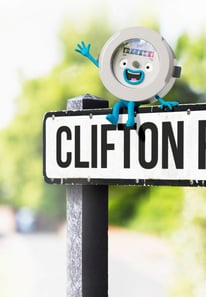
A drop of history
Let’s start at the beginning. A water meter is something which is attached to your home’s water source to measure the flow and volume of water coming in and being used. Residential water meters are not new. In fact, records show that they’ve been around since the mid-18th century.
The first known product was made in New York by Henry R Worthington. Here in the UK, it was a chap called Thomas Kennedy up in Argyll, Western Scotland.
TLDR, from that point many different designs and types have been developed all over the world for measuring domestic water consumption.
Fast forward to the present day and water meters are a common feature in many homes across the country. The Environmental Agency showed that in 2017, 50% of all households in England have one. We have people choosing to switch every single week, so I’ve got no doubt that number has grown significantly.
Your choice or no choice?
Whilst a huge number of customers chose to have a water meter, there are some properties which must be billed in a certain way, limiting customers choice on the matter. All new build properties built since 1991, for example, have water meters installed at the time of construction. This is a legal requirement in line with the Water Industry Act and cannot be reversed.
Customers told us that they want affordable bills in the long term, not just for now but for future generations. Water meters are a great way to do this because they allow customers to take full control their bill and water usage.
They also allow us to quickly identify leaks and improve the balance of supply demand across our region which is really important for future water planning. As a regulated industry, this initiative has also been backed and approved by Ofwat as the best way to achieve our goal of helping customers take control of their water usage.
Back to those myths
So, now you understand what a water meter is, it’s time to delve a little deeper into why we have them. Spoiler – it’s not to make more money!
To bill our customers who are not on a water meter we use the rate-able value (RV) of their property to calculate the cost for the year in advance.
The RV is a pretty old-fashioned way of working things out. It’s based on rates created for local authorities to work out their local taxes and was first used in 1967.
The last time it was updated was 1990! This means your water bill is based on an estimation using factors such as the size and condition of your home as it was back then. Immediately you can see how this might be unfair.
For example, if the house has undergone alterations or the number of occupants has grown or shrunk, the water usage will have changed meaning you could be paying over or under for what you use.
This is why we think water meters are great – because they really are the fairest way to charge for water usage. On a meter you pay for the water you use rather than an amount guesstimated on old information.
Because we know that not everyone will save, we have a water calculator so that customers can check how switching will affect their bill before they make the switch. The great news is that the vast majority find they will save in the long run.
They’re helping the planet, not lining the shareholders pockets
As an organisation working in a regulated industry, we work hard to provide a reliable supply of clean water for our 1.2 million customers. Water as a resource is not infinite and already, parts of the country are considered ‘water stressed’ which means that it’s becoming a scarce resource.
We’re fortunately not in that situation here but it does highlight the need to do our bit in safeguarding future resources for our users, our country and our planet. We can do this by making sure we are as efficient as possible with our water and that we encourage you, our customers to reduce your usage. We even have free water saving devices available to order online.
Water leaks are a huge area of concern for every water company and although we have the lowest leakage records in the country, it’s something we continue to take very seriously.
When it comes to leaks at home, these are often hard to spot and don’t show themselves until serious damage has been done. Water meters make it a lot easier for us as a water company and you as a resident, to spot them because a spike in usage and a bill that suddenly grows for no apparent reason is usually indicative of a hidden leak.
Spotting and fixing leaks early helps reduce water waste and saves money for both the customer and the water company.
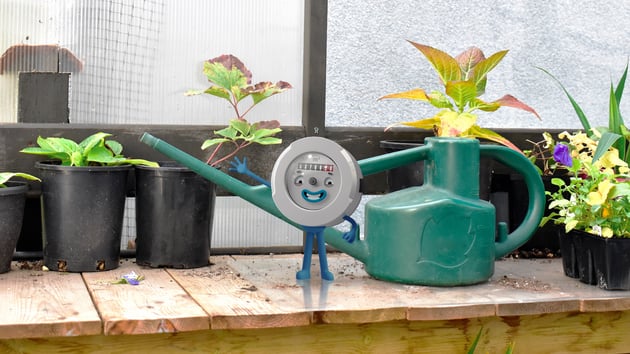
Your brain is safe with us – our meters aren’t that smart!
We sometimes get told by customers that they don’t want water meters because they “scramble our brains”. This is untrue. They work on a radio frequency and contain no smart tech.
This means they are categorically NOT smart meters. They emit a very short radio wave which is picked up by our technician’s radio device only whilst they are taking a meter reading at your property, once every six months. Aside from that time, they are static devices that do not supply data remotely.
Switching is hassle free
If you choose to move onto a water meter, we’ll make it as easy as possible for you. Usually, we can install the meter without you even needing to be home because it’s fitted outside of your property. It’s free too. And, if you change your mind, we’ll switch you back at any time within the first two years of installation. It really is a no-brainer.
The planet benefits, but will you?
We’re very open about that fact that not everyone is going to benefit financially from choosing to switch. That said, many customers do, with an average saving of around £100 a year.
A good rule of thumb is that if there are more bedrooms than people, you’re likely to save. If you live in a family home and your kids have fled the nest, switching could make a difference to your bill. People living alone also often save, simply because they use less water than say a family would.
Now that we’ve hopefully busted some of the myths that were putting you off making the switch, why not take five minutes to use our handy water calculator and find out if you can save? If it looks like you’ll save money, you can make the switch there and then.
